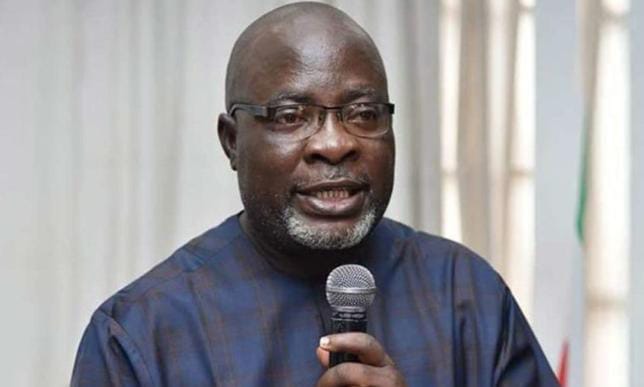Kola Ologbondiyan, a former National Publicity Secretary of the Peoples Democratic Party (PDP), has claimed that the recent wave of defections to the ruling All Progressives Congress (APC) is being driven by fear of political persecution, not ideological alignment.
Speaking on Channels Television’s Politics Today, Ologbondiyan alleged that many opposition politicians are joining the APC to avoid investigations, prosecution, or other forms of state-sponsored intimidation.
Diaspora Digital Media (DDM) reports that his comments come in the wake of several high-profile defections, including those of Delta State Governor Sheriff Oborevwori, his predecessor Ifeanyi Okowa, and multiple commissioners and political associates who crossed over to the APC last month.
Ologbondiyan pointed to what he described as a consistent pattern in Nigerian politics, where opposition leaders facing scrutiny find safe haven in the ruling party.
He referenced a past statement made by a former APC National Chairman who reportedly said,
“Just come over to our party, and we will forgive all your sins.”
According to Ologbondiyan, that statement now serves as the unwritten policy of the APC, effectively turning the party into a refuge for embattled politicians.
“There is a clear pattern here,” he said. “People are simply looking for refuge from harassment.”
He emphasized that defections, no matter how numerous or high-profile, do not necessarily equate to electoral success.
“No matter how many governors you gather, the real power lies with the people,” Ologbondiyan said.
“You may pack all 36 governors in a boardroom and ask them to defect, but have you packed over 200 million Nigerians into the same boardroom? The answer is no.”
His remarks follow growing concerns among political observers that Nigeria’s democracy is being weakened by elite defections, political opportunism, and one-party dominance.
While the APC has welcomed the influx of former opposition members, critics argue that the trend poses a threat to political pluralism and accountability.
Ologbondiyan’s assertions underscore a broader concern within Nigerian political circles the erosion of democratic values in favor of survival tactics and consolidation of power.
Since the return to democratic rule in 1999, Nigeria has witnessed a recurring pattern of party-switching, often influenced by changes in the balance of power at the federal level.
Politicians facing corruption investigations, internal party rifts, or political irrelevance frequently switch parties in search of protection, influence, or access to national resources.
Although defections are not illegal, they have drawn criticism for undermining the stability and integrity of Nigeria’s party system.
The PDP chieftain reiterated that only the electorate, not elite alliances, can deliver electoral victory, urging politicians to prioritize public trust over political convenience.
As the country inches closer to the 2027 general elections, more political realignments are expected, potentially reshaping the future of Nigeria’s democratic journey.







